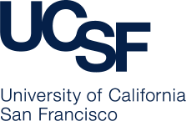DEVELOPING COLLABORATIONS WITH THE BRAIN HEALTH REGISTRY (BHR)
The Brain Health Registry (BHR) is a web-based, observational research study designed to effectively capture extensive amounts of data that may enable researchers to more efficiently identify, assess, and longitudinally monitor the cognitive changes associated with the progression of neurodegenerative diseases and brain aging.
Participants in the Brain Health Registry complete online questionnaires and cognitive tests that, over time, provide researchers with valuable information and allows them to better track changes in an individual’s health, lifestyle, and cognitive function. These changes could potentially be important indicators of a person’s brain health and could help identify and recruit ideal candidates for medical research and future clinical trials. Participants may also invite a study partner, such as a family member or friend, to answer questionnaires about the participant and him/herself. This is the first large-scale neuroscience project that leverages online possibilities in this way.
By creating a large pool of pre-qualified potential participants, the Brain Health Registry can make clinical trials for neurological diagnostics and treatments faster, better, and more innovative – all of which may accelerate the discovery of effective treatments for brain disease and disorders, such as Alzheimer’s, Parkinson’s, depression, PTSD, and many more.
This study is led by Principal Investigator (PI) Michael Weiner, MD, and Co-Investigators Scott Mackin, PhD, and Rachel Nosheny, PhD. BHR is overseen by the UCSF Institutional Review Board (IRB).
COLLABORATIONS:
One of the goals of the Brain Health Registry is to assist with recruitment, assessment, and longitudinal monitoring of participants for neuroscience studies. We are eager to develop collaborations with other investigators who share the same goal of accelerating the development of improved diagnostic tests, effective treatments and preventative interventions for Alzheimer’s disease and other brain disorders.
In addition to the different methods of collaboration outlined below, we also encourage collaborators to utilize the Brain Health Registry when writing and carrying out grants. If you are interested in utilizing the Brain Health Registry in your grant, please email us at investigators@brainhealthregistry.org.



